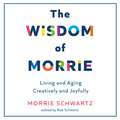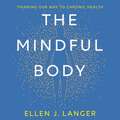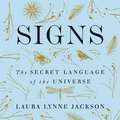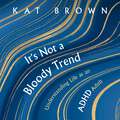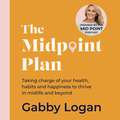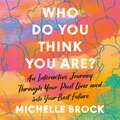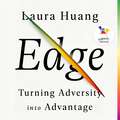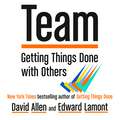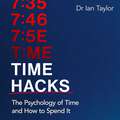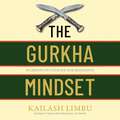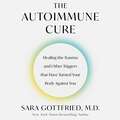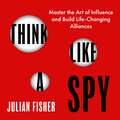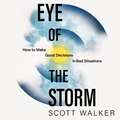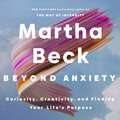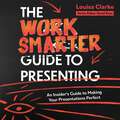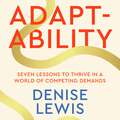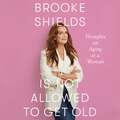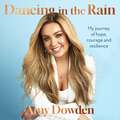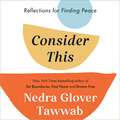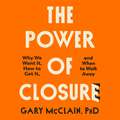- Table View
- List View
The Wisdom of Morrie: Living and Aging Creatively and Joyfully
by Morrie SchwartzWho am I really? What have I done? What is important and meaningful to me? What difference does it make that I have lived? What does it mean to be truly human, and where am I on that scale?Morrie Schwartz, the beloved subject of the classic, multimillion-copy number one bestseller Tuesdays with Morrie, explores these questions and many more in this profound, poetic and poignant masterpiece of living and aging joyfully and creatively. Later life can be filled with many challenges, but it can also be one of the most beautiful and rewarding passages in anyone's lifetime. Morrie draws on his experiences as a social psychologist, teacher, father, friend and sage to offer us a road map to navigate our futures.A great companion to Tuesdays with Morrie or the perfect introduction to Morrie's thoughtful philosophies, The Wisdom of Morrie is filled with empathic insights, stories, anecdotes and advice, told in Morrie's reassuring, calm and timeless voice. Let The Wisdom of Morrie be your guide in exploring deep questions of how to live and how to love.
The Mindful Body: Thinking Our Way to Lasting Health
by Ellen LangerBestselling author, and 'mother of mindfulness', Ellen J. Langer makes her long-awaited return sharing her groundbreaking research in The Mindful Body.Have you ever wondered if you could improve your health by harnessing the power of your mind?When it comes to our health, too many of us feel trapped by a medical diagnosis, believing that it can only mean a static or worsening condition. Whether it is stiff knees, frayed nerves or failing eyesight, your mind can lead you to believe things will only get worse. But with practical steps and scientific research you can take control of your mindset, by using your thoughts and perspective to help improve your wellbeing.In The Mindful Body, award-winning social psychologist Ellen J. Langer draws on her lifetime of expertise and trailblazing research by revealing the capacity that mindfulness has to transform our lives. Opening the door to her pioneering Harvard lab, Langer uncovers the secret of how the mind and the body are in fact a single system, and if we embrace the idea of mind-body unity, new possibilities for controlling our health become available to us.Featuring autobiographical anecdotes, iconoclastic philosophy and cutting-edge research, The Mindful Body will help you navigate a path to improved health and wellbeing and in turn boost your cognitive capabilities so that you can take back control of your body for a brighter future.
Signs: The secret language of the universe
by Laura Lynne JacksonA modern guide to connecting with the other side, Signs is full of stories of hope. It teaches us how to recognise and interpret the life-changing messages from loved ones and spirit guides, by a renowned psychic medium.Laura Lynne Jackson is a psychic medium and the author of the New York Times bestseller The Light Between Us. She possesses an incredible gift: the ability to communicate with loved ones who have passed, convey messages of love and healing, and impart a greater understanding of our interconnectedness. Though her abilities are exceptional, they are not unique, and that is the message at the core of this book. Understanding 'the secret language of the universe' is a gift available to all. As we learn to ask for and recognise signs from the other side, we will start to find meaning where before there was only confusion, and see light in the darkness. We may decide to change paths, push toward love, pursue joy, and engage with life in a whole new way.In Signs, Jackson is able to bring the mystical into the everyday. She relates stories of people who have experienced uncanny revelations and instances of unexplained synchronicity, as well as others drawn from her own experience. There's the lost child who appears to her mother as a deer that approaches her unhesitatingly at a highway rest stop; the name written on a dollar bill that lets a terrified wife know that her husband will be okay; the Elvis Presley song that arrives at the exact moment of Jackson's own father's passing; and many others. This is a book that is inspiring and practical, deeply comforting and wonderfully motivational, in asking us to see beyond ourselves to a more magnificent universal design.
The Paleo Life: Stone Age Wisdom for Modern Times
by Clare FogesHow to be more humanFor 95 per cent of our time on earth, Homo sapiens were hunter gatherers. Back in the long millennia of prehistory we met a few hundred people in a lifetime; today it's countless thousands. Back then we only cared about what directly affected us; now the news plugs our emotions into the agonies of the world. Back then our days were shaped by practical purpose; now we're endlessly searching for distraction and dopamine hits. Back then we were nurtured by nature; now we're surrounded by screens.The world has utterly transformed, but our brains and bodies haven't. We're navigating the super-speed age with kit that evolved for the Stone Age. The result? Many are tired, wired, stressed and depressed. Between the mental health problems we're suffering and the material progress we're enjoying is an uncomfortable truth: we are not living the way that human beings evolved to live. But what can we do about it?In The Paleo Life, journalist Clare Foges draws on the lifestyles of hunter gatherers past and present to offer ancient wisdom about how we can live now, from friendship to food, sex to sleep, the way we parent to the way we see our place in the world. This isn't about going all Flintstones; it's about borrowing some of our ancestors' time-tested habits to help us live more happily today. It's about living in a way that's more balanced, more simple, more human.How can our Stone Age brains and bodies thrive in a super-speed world? The Paleo Life shows how.
It's Not A Bloody Trend: Understanding Life as an ADHD Adult
by Kat Brown'A sledgehammer of a book putting to bed all the cynicism and misinformation around a condition that affects so many hidden, brilliant people' Professor Tanya Byron'Laugh out loud funny and deeply validating - every person who thinks ADHD isn't real should read this book' Leanne Maskell, author of ADHD: An A to ZNobody should spend their life feeling defective. Everyone deserves to have a user manual to their brain - welcome to yours. Once associated more with hyper boys than adults, ADHD (attention deficit hyperactivity disorder) is now recognised as a condition in need of a rebrand which affects people of all genders and ages in a multitude of ways. In this enlightening and definitive layman's guide, Kat Brown cheerfully smashes the stereotypes with scientific evidence, historical context, and practical support for ADHD minds across areas that can cause problems, from finances and work to self-medicating, relationships, hormones and self-esteem. Based on Kat's personal experience and extensive interviews with ADHDers and world-leading clinical experts, It's Not A Bloody Trend is for anyone wondering if what's always been 'wrong' with them might just be undiagnosed ADHD.
The Midpoint Plan: Taking charge of your health, habits and happiness to thrive in midlife and beyond
by Gabby LoganIT'S TIME TO REDEFINE MIDDLE AGEMAKE THE MIDPOINT THE START OF THE REST OF YOUR LIFE! Inspired by the hit podcast, The Mid-Point Plan is your midlife survival kit.Packed to the brim with advice and life lessons from experts in their field (Dr Louise Newson, Prof Greg Whyte amongst others) and successful people navigating this time of life (Claudia Winkleman, Jo Whiley, Lee Mack, Michael Johnson, Caitlin Moran, Phil Neville and so many more) the book draws on their wise words to help you to navigate the biggest challenges that midlife can throw at you. It will help you to:- keep yourself fit and healthy into older age- keep your brain firing on all cylinders- improve your sleep- deal with anxiety- thrive in your career- navigate changing relationships (whether that's empty nests or aging parents)- cope with illness and loss- be a healthier, more productive, creative and happy older personWith a Midpoint Action Plan (MAP) at the end of each chapter, it contains all the tips and tricks, habits and practices you need for a positive mindset, a healthy body and a happy life. It's a must-have manual for all mid-life men and women.You can read it all the way through or you can keep it by the bed, on the shelf in the kitchen or in the loo to dip into when you need help with something in particular. However you read it, it will be there to offer comfort, motivation and maybe a shared experience to help you through the tougher days.
Rough Patch: How a Year in the Garden Brought Me Back to Life
by Kathy SlackWhen Kathy was forced to quit her high-flying career in London, she was a wreck - burnt out, anxious, consumed by depression. But she found solace in an unlikely place - the veg patch. She put her hands in the soil and found a way to grow, to sow some small seeds of hope.In Rough Patch, Kathy draws us into the world of the kitchen garden to reflect on the lessons she learnt from the soil, along with sharing recipes inspired by the land. Weaving together her own story of recovery with the year she spent growing and cooking her harvests, Kathy realises that the two are tightly bound together and that reconnecting with the earth could restore her hope and renew her life. Along the way there are tales of marauding pigs, transformative insights from planting leeks, recipes for an unchecked courgette glut and the discovery of why a radish seed is worth staying alive for. The result is a candid, hopeful and sometimes funny story about the healing powers of nature; a quiet manifesto for a more connected life.PLEASE NOTE: When you purchase this title, the accompanying PDF will be available in your Audible Library along with the audio
Who Do You Think You Are?: An interactive journey through your past lives and into your best future
by Michelle BrockA powerful guide to manifesting the happiness and satisfaction we desire in the present by reconnecting with our experiences from the past, from a master intuitive and expert life coachIn our identity-obsessed culture, it is easy to think that who we are is determined by what we see in the mirror. But what if we open our minds to the notion that we are souls journeying through many lives over time? How would it change the way we think about ourselves now to remember how we lived before? Michelle Brock has helped thousands of people discover the stories of their previous lives - their traumas and triumphs, losses and loves - and has witnessed incredible results. When we learn our stories from the past, we can reach unprecedented heights of self-awareness in the present. Asking questions about our other lives is inherently human and essential to our spiritual development. With Michelle's enlightening guidance and prompts throughout to encourage self-reflection and compassion, you will be inspired to reject any limiting notions of what defines you, heal from the ordeals of previous lives, and embrace a joyful, emotionally fulfilling existence in the here-and-now.
Edge: Turning Adversity into Advantage
by Laura HuangThere's power in owning the obstacles you might face. This book shows you how to unlock it.In an ideal world, we'd succeed based on our actual skills and performance. But in the real world, subtle perceptions and stereotypes - about appearance, race, gender, experience and more - colour others' perceptions. The result might be that your hard work isn't noticed or appreciated, your effort doesn't lead to proportional rewards and your good ideas aren't taken seriously.But it doesn't have to be that way. As Harvard Business School Professor Laura Huang has discovered, there's a way to flip stereotypes and obstacles in your favour. Drawing on compelling case studies and her groundbreaking research on overcoming bias, Huang explains that by finding your edge, you can turn perceived disadvantages into real strengths - and into real success.Creating an edge is the key to succeeding within an imperfect system.Edge will help you make your hard work work harder for you. It will help you be seen - and empower you to take the spotlight with authenticity, charm and poise.
Team: Getting Things Done with Others
by David Allen Edward LamontA groundbreaking book about how to harness the power of collaboration and work most effectively in groups - coauthored by Getting Things Done's David AllenWhen Getting Things Done was published in 2001, it was a game-changer. By revealing the principles of healthy high performance at an individual level, it transformed the experience of work and leisure for millions. Twenty years later, it has become clear that the best way to build on that success is at the team level, and one of the most frequently asked questions by dedicated GTD users is how to get an entire team onboard.By building on the effectiveness of what GTD does for individuals, Team will offer a better way of working in an organisation, while simultaneously nourishing a culture that allows individuals' skills to flourish. Using case studies from some of the world's most successful companies, Team shows how the principles of team productivity improve communication, enable effective execution and reduce stress on team members. These principles are increasingly important in the post-pandemic workplace, where the very nature of how people work together has changed so dramatically.Team is the most significant addition to the GTD canon since the original, and in offering a roadmap for building a culture of sustainable high performance, will be welcomed by readers working in any sized group or organisation.
Be Your Own Best Friend: And other lessons from a life in and out of the limelight
by Ekin-Su Cülcüloglu'I want to take you on the rollercoaster of my life - throughout all the highs and lows, I have learned a lot. And hopefully, these lessons will feel useful to you too.'If life on both sides of fame has taught Ekin-Su anything, it's that the most important relationship you have is the one with yourself.As one of the most talked about TV stars, you would think that life in the spotlight comes easily to Ekin-Su - but the reality couldn't be more different.In this honest and uplifting guide to life, Ekin-Su reveals the hard-won lessons that have made her the person she is today. Vulnerable, authentic, and packed with never heard before stories, readers will get to understand the woman behind the headlines and filters. It's time to get acquainted with the real Ekin-Su as she shares her story, in her own words.From childhood bullies, to navigating difficult relationships - and learning to love her true self - Ekin-Su will encourage readers to become their own biggest cheerleaders.Powerful, inspiring and infused with the Ekin-Su's trademark humour, warmth and honesty, Be Your Own Best Friend tells of overcoming childhood bullies, navigating difficult relationships - and how she is learning to love herself.
This is Beauty. This is Fashion. This is Life.: The expert guide for people short on time
by This Is Mothership'Hands down the most useful guide to pull yourself out of a style rut & master the beauty basics, full of things I wish I'd known' Ashley James'Real-life advice from busy women for busy women' Harriet Walker, Fashion Editor, The Times'They won't just transform your wardrobe or your beauty regime, Sam and Gemma's book is full of time saving tips, hacks and tricks; it's the modern woman's guide to life' Deborah Joseph, Editor in Chief, Glamour'A really useful guide to streamline life, your wardrobe and to help you master the beauty basics' Sarah Jossel, Beauty Editor, Sunday Times StyleBalancing a busy social life, maintaining healthy friendships, managing the motherload, focusing on family, running a home and working on your career goals leaves little time for anything else. Finding the headspace to look and feel great while you are trying to do it all can be completely overwhelming. Beauty journalist Samantha Silver, and fashion stylist Gemma Rose Breger, founders of This is Mothership, have the perfectly honed hacks to make it feel effortless.This is Beauty. This is Fashion. This is Life. will help you to simplify your daily routines, and empower you to become the best version of yourself. Whether you're looking to revitalise your skincare, master pro make-up techniques, detox your wardrobe, learn how to style your body type, refresh your home or reclaim your 'me time', This is Mothership can show you how.Featuring step-by-step beauty routines, hero products, capsule wardrobe planning, simple styling tips, lifestyle hacks and down-to-earth, relatable advice, Sam and Gemma will provide you with the expert guidance and tools to feel confident, look stylish, and find yourself again.This is the only lifestyle guide you need.
Time Hacks: The psychology of time and how to spend it
by Ian TaylorWe think of time as scarce and finite. We say we 'don't have enough time', that 'time is against us', and that 'time waits for no one'. But what if we could make time feel more abundant? How can we make time work for rather than against us?In Time Hacks, Dr Ian Taylor - a world-leading expert in the science of the human mind - draws on the latest psychological research to reveal how we can develop a healthier relationship to time; one where we can break free of the cycle of boredom and mania, be more productive, and bring balance to all parts of our lives.In the process, he demonstrates why all difficult tasks should be done early in the morning, the detrimental effects of relying on willpower, why we should use 'be' goals to sustain motivation, and how to replace 'dead time' with activities that nourish the soul.Fascinating and eye-opening, Time Hacks will show you how to use the power of psychology to feel less time pressured, boost your mental and physical health, and break free from the tyranny of your alarm clock.
The Gurkha Mindset: 10 Lessons in Courage and Resilience
by Captain Kailash LimbuThe Gurkha Mindset distils the wisdom and experiences of a seasoned Gurkha soldier into ten powerful lessons for life and leadership.Drawing from over two decades of service in the British Army, including five tours in Afghanistan and deployments in Bosnia and Sierra Leone, Captain Kailash Limbu shares the core principles that have shaped his journey as a soldier and a man. Through the metaphor of the khukuri, a symbolic and essential tool for every Gurkha, he illustrates how mindset and behaviour are crucial to overcoming challenges, achieving success and leading with honour.Kailash reveals how the disciplined and courageous mindset of the Gurkhas can be applied to everyday life, helping readers manage emotions, foster teamwork, lead effectively and prioritise self-care. Each lesson is rooted in the simplicity and strength of the Gurkha way of life, offering practical insights that are both timeless and adaptable to any context.Whether you seek to enhance your personal life, advance in your career or simply find greater fulfilment, The Gurkha Mindset provides the tools to sharpen your focus, build resilience and embrace life's challenges with a warrior's spirit.
The Autoimmune Cure
by Sara GottfriedNew York Times bestselling author Dr Sara Szal Gottfried reveals how trauma can rewire your body to trigger autoimmune diseases - and provides a comprehensive plan to reset your immune system and finally healWe know that autoimmune disease - a condition when the body's immune system attacks its own healthy tissue and cells - affects millions of people worldwide. But as New York Times bestselling author Dr Gottfried explains in this eye-opening new book, autoimmune disease may be even more pervasive than we realise - and its cause may surprise you.Conventional medicine falls short when it comes to both diagnosing and treating autoimmune disease. Many people suffer from mysterious symptoms like severe fatigue, brain fog, aches and pains, feelings of tingling and numbness, stubborn weight gain, abdominal pain, digestive problems, hair loss, insomnia, and even anxiety, and don't realize their immune system is at the root of their symptoms. In her precision medicine practice, Dr Gottfried noticed a seemingly unusual pattern: many of her patients who suffer from autoimmune disease and symptoms have a history of trauma. Emerging research shows that up to 80 per cent of patients with autoimmune disease experienced significant emotional distress before getting sick.With The Autoimmune Cure, there is hope on the horizon for the tens of millions of people who suffer from autoimmune disease. Dr Gottfried has created a powerful programme designed to break the vicious cycle of autoimmune disease, reset your immune system and restore your health, with advice on diet, sleep, supplements, breathwork, microbiome restoration, somatic therapy and much more.The Autoimmune Cure offers a road map to lasting relief from autoimmune disease by addressing the underlying cause of the condition and healing the body, mind and spirit.
Think Like a Spy: Master the Art of Influence and Build Life-Changing Alliances
by Julian Fisher'It's rare to find a book that is not only intensely personal but deeply practical. Julian Fisher has somehow pulled it off, in this fascinating and engaging guide to the art of influence. Think Like a Spy is a fantastic read, full of eye-opening espionage tradecraft as well as insightful tips on how to achieve your business goals. Highly recommended' - Henry Hemming, author of Four Shots in the NightDiscover the secret skills of influence and persuasion taught to intelligence officers and how to adapt them to win over personal and professional allies to your cause. Every day, intelligence officers achieve the unimaginable. They persuade people to share classified secrets with them. To become traitors, in fact. And their targets do it willingly, despite the risk of imprisonment, torture and, even, execution. Spies achieve this thanks to their structured use of nine secret skills of espionage. In Think Like a Spy, you'll learn these techniques and how to adapt them for effective and ethical use in your own life.A good spy is a people-person. She knows how to identify a potential agent, how to attract their attention and what to do to build an enduring relationship with them. From this base, she will coax out personal information to work out what makes her target tick. She will use that knowledge and her understanding of human psychology to her advantage while winning lasting commitment from her new ally.All these skills can be mastered and turned to use in civilian life. The author realised that he used all of them in his own progress from the poorest postcode in Britain to Oxford University, into a blue-blooded stockbroking firm, and on to a thrilling and varied career in the security and intelligence worlds. Julian uses a wide variety of stories from this journey to illustrate how spy skills can be adapted to situations and challenges that we all face.Everyone is capable of thinking like a spy and of using that thinking to transform their lives. This is your opportunity to learn how.
Eye of the Storm: How to Make Good Decisions in Bad Situations
by Scott WalkerMaster your emotions, think clearly and make better decisions, even in the toughest of situations.Drawing from his extensive career as a kidnap-for-ransom negotiator, Scott Walker shares practical tools and insights to help you stay calm, act decisively and thrive under pressure.Whether you're facing challenges at home, managing workplace demands or dealing with daily stresses, this book will help you build resilience, resolve conflicts and strengthen relationships.If you enjoyed his Sunday Times bestseller, Order Out of Chaos (2023), you'll love this follow-up!
Your Superpower: Embrace what makes you different
by Tasha GhouriTasha Ghouri has been watched by millions of people as part of the nation's most popular shows. But what sets Tasha apart is her superpower. Something that once made her feel like an outcast is now her greatest source of strength and community. We all have something that sets us apart - Tasha's superpower is her identity as a Deaf woman, what's yours? In Your Superpower, Tasha will describe how she overcame hurdles growing up to feeling confident in embracing who she is now. She will interview people from all walks of life to detail disabilities and differences of all kinds, such as blindness, alopecia, acne, mental health, and will show how you can use your difference to make a difference, and how to be unapologetically yourself.From love, respect, growth, determination and responsibility, Tasha will reveal how she embraces her superpower and encourage you to love, and use yours, for good, too.
Beyond Anxiety: Curiosity, Creativity and Finding Your Life's Purpose
by Martha BeckFrom bestselling author Martha Beck, a new path to overcoming anxiety by awakening the creativity within.We live in an epidemic of anxiety. Most of us assume that the key to overcoming it is to think our way out. And for a while it works. But there is always something that sends us back into the anxious spiral we've been trying to climb out of.In Beyond Anxiety, Dr Martha Beck explains why anxiety is skyrocketing around you, and likely within you. She also tells you how to not only reduce your anxiety but use it to propel you into a life filled with peace, meaning, and joy.Using a combination of the latest neuroscience as well as her background in sociology and coaching, Beck explains how our brains tend to get stuck in an 'anxiety spiral,' a feedback system that can increase anxiety indefinitely. To climb out, we must engage different parts of our nervous system - the parts involved in creativity. Beck provides instructions for engaging the 'creativity spiral,' in a process that not only shuts down anxiety but leads to innovative problem solving, a sense of meaning and purpose, and joyful, intimate connection with others - and with the world.The opposite of anxiety, it turns out, is a wonderful new way of life - one that can calm and inspire us as individuals and help us become a source of healing for everything around us.
The Work Smarter Guide to Presenting: An Insider's Guide to Making Your Presentations Perfect (Work Smarter Series)
by Louisa ClarkeFact: most people would rather die than present in public. According to the National Institute of Mental Health, 75% of people rank fear of speaking in public as their number-one fear. In second place: death. For many people, presenting arouses fear of failure, of forgetting their content, of appearing nervous, of being ignored or judged by their audience, of encountering the unexpected, of technology, of going on too long or drying up. And too many presentations are lifeless, pointless and go on far too long. Yet the ability to stand up and give a presentation, a speech, a lesson or a toast in a way that captures your audience's attention and actually makes them think, feel or do something as a result is one of the most effective ways to stand out at work and in life. This book is a shortcut to making you shine on stage when you are under the spotlight or presenting on screen. It is a supremely practical guide to giving presentations that will take away the fear factor by providing the tips, techniques and tools to create and deliver presentations you'll enjoy giving and your audience will want to hear. Think of it as a friendly and experienced coach who can help you focus on the things that really make the difference in presenting so you can project the real you to the world in a way that feels comfortable and smart.The Work Smarter series:Our books provide shortcuts, tips and life-hacks for the development of essential business skills. The books bring together accomplished industry experts who have learned their trades at the coalface. They teach the skills ambitious businesspeople need in order to tip the playing field in their favour. It is the pirate equivalent of business advice; the antidote to conventional wisdom; 'smarter' practice over 'best practice'.
Adaptability: Seven Lessons to Thrive in a World of Competing Demands
by Denise LewisHarness the power of adaptability to embrace change, overcome obstacles and achieve success.Women are facing more pressure and stress than ever before. Between work, childcare, caregiving responsibilities, maintaining relationships and looking after finances, many are struggling to manage the demands placed on them, with a significant number feeling overwhelmed and unable to cope at times. These challenges are something that Denise Lewis understands well; as an athlete, broadcaster, woman, and mother, her life, like that of many women, is one of constant adaptation. Now, Denise is determined to help women harness the power of adaptability. She aims to teach you how to become your own life coach and navigate the many roles we take on throughout life. In Adaptability, she will guide you through seven key lessons learned from her experiences both on and off the track, including maintaining your identity, building resilience, seeking support, trusting your instincts, and more. By applying these principles, women from all backgrounds can unlock their full potential, develop the tools to overcome challenges, and embrace their multifaceted identities both at work and beyond.While we may not be able to have it all, we can come close by consciously cultivating the skills needed to thrive in every area of our lives.
Brooke Shields is Not Allowed to Get Old: Thoughts on ageing as a woman
by Brooke ShieldsFrom generational icon Brooke Shields comes an intimate and empowering exploration of ageing that flips the script on the idea of what it means for a woman to grow olderBrooke Shields has spent a lifetime in the public eye. Growing up as a child actor and model, her every feature was scrutinised, her every decision judged. Today Brooke faces a different kind of scrutiny: that of being a 'woman of a certain age'. And yet, for Brooke, the passage of time has brought freedom. At fifty-nine, she feels more comfortable in her skin, more empowered and confident than she did decades ago in those famous Calvin Kleins. Now, in Brooke Shields Is Not Allowed to Get Old, she's changing the narrative about women and ageing. This is an era, insists Brooke, when women are reclaiming agency and power, not receding into the shadows. These are the years when we get to decide how we want to live - when we get to write our own stories. With remarkable candour, Brooke bares all, painting a vibrant and optimistic picture of being a woman in the prime of her life, while dismantling the myths that have, for too long, dimmed that perception. Sharing her own life experiences with humour and humility, and weaving together research and reporting, Brooke takes aim at the systemic factors that contribute to age-related bias. By turns inspiring, moving, and galvanising, Brooke's honesty and vulnerability will resonate with women everywhere, and spark a new conversation about the power and promise of midlife.
Dancing in the Rain: My story of hope, courage and resilience
by Amy DowdenStrictly Come Dancing professional and breast cancer and Crohn's awareness advocate Amy Dowden shares her journey from growing up in the Welsh Valleys to dancing on the glittering stage of prime-time television. Through her debilitating illness as a teen and her recent chemotherapy treatment for stage 3 breast cancer, Amy's is a story of an unbreakable spirit with an irrepressible joy for life and dance; she is living proof that our darkest times do not define us. From her first dance lesson, Amy never wanted to be off the dance floor; when the music is on, nothing else matters, and it has been what has kept her going in the toughest of times. Despite facing the relentless challenges of undiagnosed Crohn's disease through her teens, Amy's love for dance remained unwavering. Her passion led her to win the British Championships with her partner and become the first Welsh professional dancer on Strictly Come Dancing. However, Amy's journey took an unexpected turn when she discovered a lump in her breast just before her honeymoon. Despite undergoing a mastectomy and enduring gruelling chemotherapy, her journey was far from over. Complications arose, and she faced the harsh reality of reduced chances of having children. Yet, through it all, Amy's spirit remained unbroken, fuelled by her love for dance and the unwavering support of her family, friends and supporters.In Dancing in the Rain, Amy Dowden shares her poignant and deeply personal story, offering solace and inspiration to anyone navigating life's storms. With courage and vulnerability, she reminds us that no matter the challenge, the human spirit can prevail, and that even in the darkest of times, there is always hope.
Consider This: Reflections for Finding Peace
by Nedra Glover TawwabDaily reminders for growth and positive change, from the New York Times bestselling author of SET BOUNDARIES, FIND PEACE and DRAMA FREECONSIDER THIS is a collection of messages intended to uplift, support, and guide us deeper into ourselves. Instead of focusing on what others should do, or who's holding us back, or trying to control external influences, licensed therapist Nedra Glover Tawwab will help you shift your perspective for the better.In this inspiring book of daily insights, Nedra delivers food for thought, friendly reminders, and perspective shifts to help us stay true to who we are and what matters most. Topics include setting boundaries, rising above drama, expressing ourselves with clarity and integrity, and finding peace and joy every chance we can get.This empowering and embraceable book will help us stay the course - and grow more fully into ourselves every day.
The Power of Closure: Why We Want It, How to Get It and When to Walk Away
by Gary McClain"If only I could get some closure..." If you've found yourself saying these words, you're not alone. When you've lost a relationship, a job, or a loved one, closure can seem as elusive as it is necessary. Psychotherapist and relationship coach Gary McClain says it's one of the most common - and important - issues his clients bring up.In this empathetic and insightful guide, Dr McClain explains why the promise of closure is so appealing - and why it's not always all it's cracked up to be. He walks readers through what closure is (and isn't), the reasons we want it, how to seek it in healthy and productive ways, and ways to move forward when we don't get the closure we're looking for. Learn how to find peace and leave regret behind when you can't stop obsessing about a fight with a friend, when your world has been turned upside down by a breakup, or when a loved one has died. Whether you're dealing with the pain of loss or are simply feeling the need to tie up a loose end, big or small, in a relationship, the power of closure will help you let go of the past and embrace the future.
